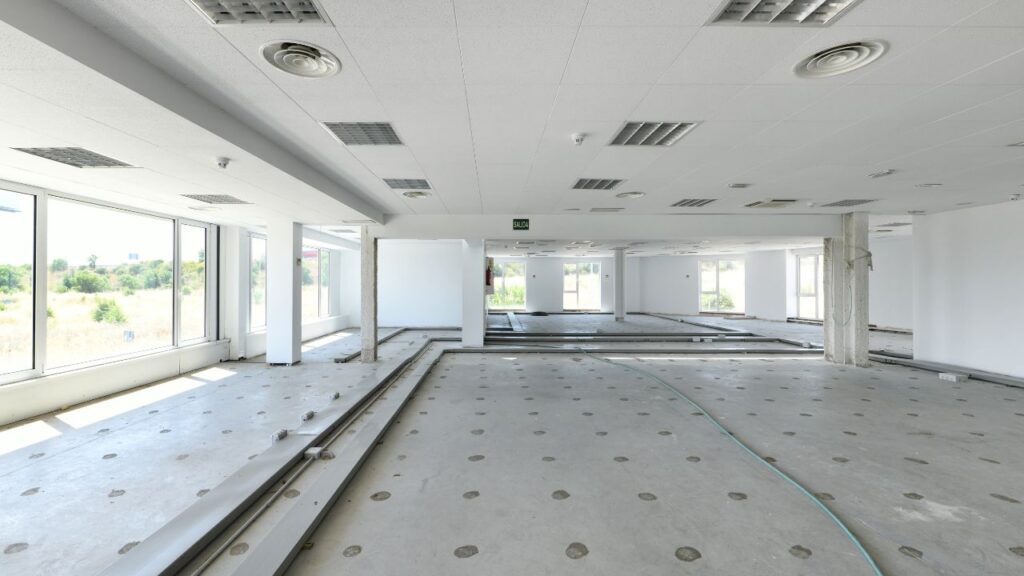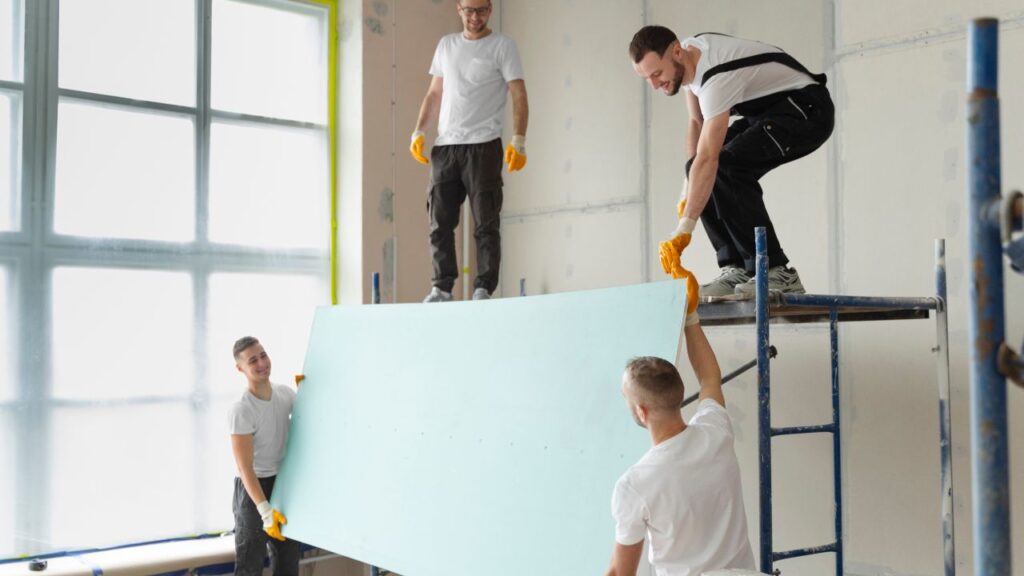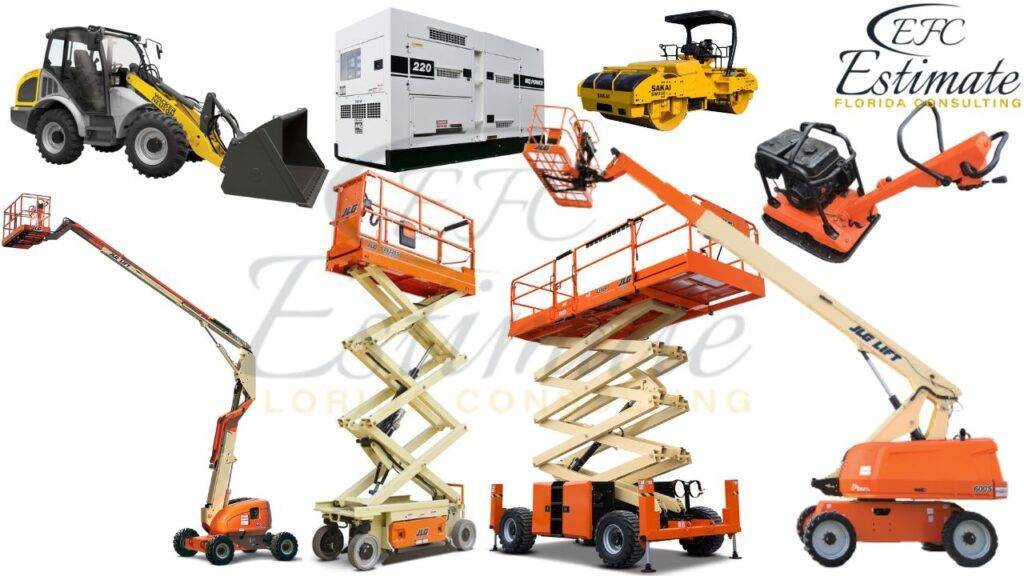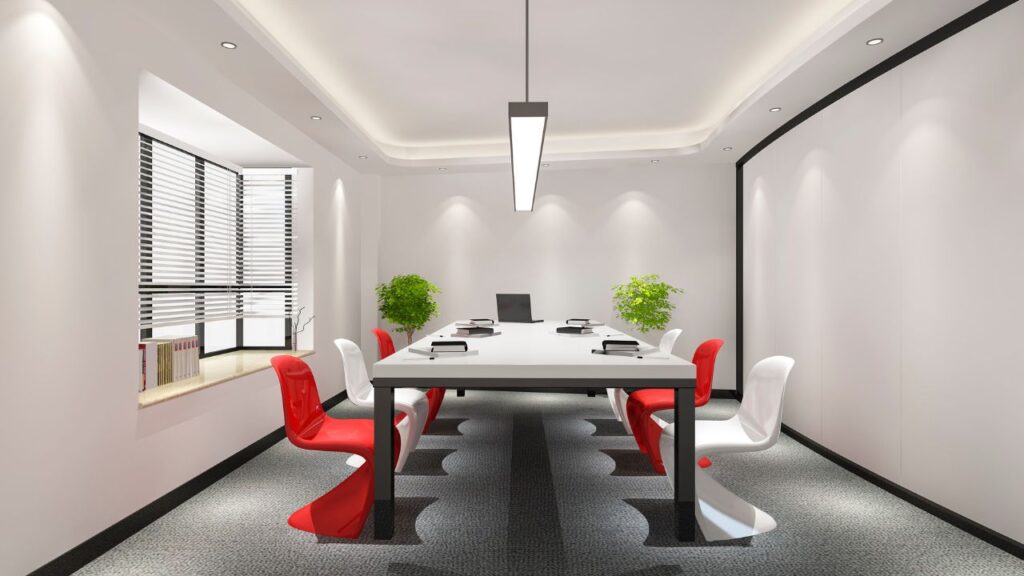Our Experience
- We provide estimates without any hassle.
- We have 30+ years of experience.
If you’re in Doral and considering a drywall project, accurately estimating the costs is paramount. Whether you’re looking to enhance your commercial space or transform your residential property, understanding the factors influencing drywall expenses is essential.
For commercial projects, the scope and scale of the space play a significant role in cost estimation. Larger areas naturally require more materials and labor, potentially leading to higher expenses.

Additionally, the type of drywall used is crucial – fire-resistant and soundproof variants might be necessary for safety and functionality reasons, but they can come at a higher cost. Moreover, the accessibility of the space can impact labor costs, especially in cases where high ceilings or intricate layouts require specialized equipment or additional workmanship.
When it comes to residential projects, the considerations shift slightly. The size of the rooms you plan to drywall is a primary determinant of costs. Moreover, the type of drywall required varies based on the room’s purpose – moisture-resistant drywall is essential for areas like bathrooms to prevent damage from humidity. Deciding between repairing existing drywall and installing new walls also influences costs, as the latter tends to be more expensive.
In both commercial and residential scenarios, labor expenses are significant contributors to the overall budget. The complexity of the project, the skill level required, and local labor rates all factor into this aspect. In commercial projects, hiring professionals experienced in handling larger-scale installations is crucial, while in residential settings, ensuring quality workmanship remains paramount.
The cost of your drywall project can vary significantly based on several factors that encompass a range of considerations.
Whether you’re working on a commercial building or a residential home, the size of the area you plan to drywall directly impacts costs. Larger spaces naturally require more materials and a greater amount of labor, which inevitably leads to higher expenses. The dimensions of the project area, including ceiling height and wall length, all contribute to the overall scope and subsequently influence the budget allocation.
The choice of drywall is a crucial decision that influences both the cost and functionality of your project. In commercial spaces, particularly, specific drywall types might be necessary to meet safety and privacy requirements. Fire-resistant and soundproof drywall can be imperative for spaces where compliance with fire codes and noise reduction is essential. On the residential front, different areas of the home demand varying drywall specifications. For instance, moisture-resistant drywall is a practical choice for bathrooms where humidity levels are higher, whereas standard drywall suffices for other areas. Each type of drywall comes at a different price point, reflecting its unique attributes.
Accessibility considerations are especially pertinent in both commercial and residential projects. In commercial properties, high ceilings, intricate architectural designs, and unique layouts might pose challenges for drywall installation. These complexities can impact labor costs, as specialized equipment or additional labor might be required to effectively navigate and complete the task. Similarly, in residential spaces, tight corners and confined spaces can present obstacles that require extra effort and time, thereby influencing the overall labor expenditure.
Determining whether repairs or a new installation is needed is a pivotal factor in cost estimation. In both commercial and residential projects, repairing existing drywall is generally more cost-effective than installing entirely new walls. Evaluating the extent of damage, whether it’s minor cosmetic issues or structural concerns, is essential in determining the most economical approach. While repairs might seem more affordable on the surface, assessing the potential long-term benefits of new installations, such as enhanced durability and aesthetic appeal, is also crucial in making an informed decision that aligns with your project goals.

When considering a drywall project, the choice between DIY installation and hiring professional contractors merits careful consideration. While the allure of saving money through DIY might be tempting, the complexities of drywall installation demand a high level of skill and expertise. Professionals possess the experience to ensure precise measurements, seamless joints, and proper material application, resulting in a polished finish. Additionally, they are well-equipped to address unexpected challenges, such as uneven surfaces or intricate architectural features. Moreover, professional installation guarantees compliance with safety codes, an essential factor in both residential and commercial projects. While DIY might seem cost-effective upfront, the potential for errors and subsequent corrective actions can incur higher costs in the long run. Opting for professional installation not only ensures top-notch results but also provides peace of mind, knowing that your project is in the hands of skilled professionals who can navigate complexities effectively and efficiently.
We help contractors find new customers with high-converting websites and locally targeted niche-specific lead-generation programs. You’ll never need to worry about running out of work again! We focus on quality over quantity with our leads for contractors.
Understanding the different types of drywall is paramount in accurately estimating costs and ensuring the right materials are chosen for your project. Drywall isn’t a one-size-fits-all solution; various types cater to specific needs, functionalities, and environments.
Standard drywall, also known as regular drywall, is the most common type used in both commercial and residential projects. It’s versatile and suitable for most interior walls and ceilings. While it’s not specifically tailored for any particular environment, it provides a solid foundation for various finishing techniques. Its affordability makes it a popular choice, especially for projects with budget constraints.
Moisture-resistant drywall, also referred to as green board or MR board, is designed to withstand higher humidity levels. It’s an ideal choice for spaces prone to moisture exposure, such as bathrooms, kitchens, and laundry rooms. This type of drywall features a water-resistant gypsum core and a moisture-resistant paper covering, which help prevent damage caused by mold, mildew, and moisture absorption.
Fire-resistant drywall is formulated with special additives that offer enhanced fire protection. It’s often used in commercial buildings and spaces where fire safety regulations are stringent. In the event of a fire, this type of drywall can help delay the spread of flames, providing valuable time for occupants to evacuate and firefighters to control the situation. It comes in different fire ratings, indicating its ability to withstand fire for a specified duration.
Soundproof drywall, also known as acoustic drywall, is designed to minimize sound transmission between rooms or spaces. It’s commonly utilized in spaces where noise reduction is crucial, such as recording studios, home theaters, and shared walls between residential units. This type of drywall incorporates additional layers and materials that absorb and dampen sound vibrations, effectively reducing noise transfer.

When considering a drywall installation project, understanding the various materials and their associated costs is essential for making informed decisions. Here’s a comprehensive table outlining different drywall materials along with their estimated costs to help you plan your project effectively:
Drywall Material | Description | Pros | Cons | Average Cost per 4’x8′ Sheet |
Regular Drywall | Standard gypsum core, versatile | Affordable, easy to work with | Not suitable for high moisture areas | $7.20 – $12.00 |
Moisture-Resistant Drywall | Enhanced moisture resistance | Resists mold and mildew, suitable for humid areas | Slightly more expensive | $12.00 – $18.00 |
Fire-Resistant Drywall | Increased fire protection | Offers improved fire resistance | Higher cost than regular drywall | $14.40 – $24.00 |
Soundproof Drywall | Sound-dampening properties | Reduces noise transmission | More expensive, heavier | $24.00 – $36.00 |
Paperless Drywall | Fiberglass mat facing instead of paper | Resistant to mold and moisture | Limited availability, higher cost | $14.40 – $21.60 |
Lightweight Drywall | Reduced weight for easier installation | Easier to handle and install | Lower impact resistance | $9.60 – $14.40 |
These cost estimates are approximate and can vary based on factors such as location, brand, and quantity. It’s advisable to consult with suppliers and contractors to get accurate pricing for your specific project.
Accurately estimating material costs is a pivotal step in ensuring the success of your drywall project. The intricate interplay of factors such as drywall type, quality, and quantity required shapes the financial landscape of your endeavor. This process gains added complexity when dealing with commercial spaces, where the demand for higher-grade materials to ensure durability and safety is often more pronounced.
The type of drywall you choose has a direct impact on cost considerations. While standard drywall is generally more cost-effective, specialized variations like moisture-resistant, fire-resistant, and soundproof drywall come with a higher price tag due to their unique properties. In the realm of commercial spaces, where adherence to regulations is paramount, the investment in fire-resistant drywall might be deemed essential to align with stringent safety standards.
The quality of the chosen drywall is a vital determinant not only of upfront aesthetics but also of long-term durability. Opting for higher-quality drywall can prevent issues like cracks and warping, reducing the need for frequent repairs or replacements. Though the initial expense of premium drywall might be greater, the potential savings over time make it a prudent choice for both residential and commercial projects.
The extent of your project area dictates the volume of drywall required. Larger spaces naturally demand more materials, thereby contributing to higher material costs. A meticulous assessment of dimensions, accurate measurements, and precise calculations are pivotal in avoiding wastage due to over-purchasing or disruptions caused by insufficient materials.
In the context of commercial ventures, a distinct set of considerations comes into play. Factors such as increased foot traffic, potential impacts, and stringent safety codes necessitate the selection of materials that can withstand the rigors of sustained use. Opting for subpar materials might lead to recurrent repairs and replacements, ultimately driving up maintenance costs. Prioritizing higher-grade drywall and associated materials is a strategic move that ensures longevity and minimizes the likelihood of unforeseen expenses.
Maximize your drywall business’s potential with our competitive financing options

As you delve into the realm of drywall projects, it’s crucial to extend your considerations beyond the core materials and labor expenses. Ancillary costs such as tools, equipment rentals, and permit fees are essential components that can significantly impact your budget. While these expenses might appear inconspicuous at first glance, their cumulative effect can rapidly escalate. Proper tools and equipment, tailored to the unique demands of your project, ensure efficiency and precision during installation, ultimately contributing to the quality of the end result. Investing in tools like taping knives, joint compound applicators, and sanding materials can lead to smoother surfaces and more professional finishes. Moreover, permit fees are a regulatory necessity, particularly for commercial spaces, and failing to account for them can lead to unexpected delays and potential legal complications that hamper your project’s progress. Adequate allocation for these fees demonstrates a commitment to compliance and a proactive approach to project management. By meticulously factoring in these supplementary costs, you create a comprehensive budget that not only accurately reflects the financial demands of your drywall project but also ensures a seamless, compliant, and successful execution, setting the stage for a project that unfolds smoothly from inception to completion while adhering to all necessary regulations and requirements.
In the intricate tapestry of drywall projects, meticulous budgeting emerges as a guiding thread that weaves financial prudence and project success. By delving beyond the surface costs of materials and labor, and embracing a holistic approach to budgeting, you pave the way for a harmonious and well-executed endeavor.
A detailed budget serves as your financial compass, allowing you to navigate the multifaceted landscape of drywall projects with precision. It enables you to allocate funds strategically, ensuring that each aspect of your project is adequately funded without unwarranted extravagance. From materials to labor, from tools to equipment, every component finds its place within your budgetary framework, preventing the dispersion of resources haphazardly.
The art of budgeting is, at its core, the art of restraint. It serves as a safeguard against the allure of unnecessary expenditures and extravagant indulgences. Through calculated financial planning, you instill a sense of discipline that prevents overspending, allowing you to stay within the confines of your financial means. This restraint is particularly significant when considering the inherent complexities of drywall projects, which can be laden with various expenses that might easily spiral out of control without a comprehensive budget in place.
Within the realm of any project, unexpected surprises are an inevitability. In the context of drywall projects, unforeseen challenges or requirements can surface, demanding additional resources. By incorporating a buffer for these unforeseen expenses into your budget, you cultivate resilience and preparedness. This buffer acts as a safety net, absorbing the impact of unexpected twists and turns without destabilizing your project financially.
For commercial ventures, the stakes are elevated due to the higher number of variables at play. Commercial projects often entail more intricate designs, greater scale, and a higher level of compliance. Consequently, the importance of budgeting becomes magnified. A meticulous budget that considers every dimension of the project prevents financial chaos, ensuring that your project proceeds seamlessly even in the face of commercial complexities.

Looking for a reliable construction equipment rental company? Look no further. Rent from us today.
In the intricate landscape of drywall projects, the pursuit of cost savings requires both finesse and strategic planning. By integrating these practical tips into your approach, you can unlock substantial financial benefits without sacrificing the quality and integrity of your project.
When evaluating drywall options, consider your project’s unique requirements. If specialized attributes like moisture resistance, fire resistance, or soundproofing aren’t essential, opting for standard drywall can be a smart choice. Its affordability and versatility make it an ideal candidate for projects where these advanced features aren’t mandatory. This decision not only trims costs but also ensures that you’re allocating resources in alignment with your project’s needs.
Synergy plays a pivotal role in cost savings. When tackling multiple smaller projects, consider bundling them together under a comprehensive plan. This approach allows you to leverage economies of scale, as professionals can efficiently transition between spaces, optimizing their time and reducing overall labor costs. Whether it’s a series of rooms in a residential project or various sections in a commercial setting, this strategy capitalizes on streamlined efforts and maximizes your investment.
While the expertise of professional installers is irreplaceable, contributing to preparation work can enhance project efficiency. Clearing the workspace, removing potential obstacles, and ensuring a conducive environment facilitates smoother installation. Tasks like priming walls and taking measurements can be accomplished beforehand, minimizing labor hours. Collaborating with professionals in this manner not only accelerates the project timeline but also minimizes labor costs without compromising quality.
It’s crucial to emphasize that these cost-saving tips are centered on achieving efficiency while upholding project excellence. Opting for standard drywall or bundling projects should never jeopardize structural integrity or aesthetics. Furthermore, assisting with preparatory tasks is intended to complement the proficiency of professionals, enhancing their workflow rather than replacing their expertise.
Delving into the realm of drywall costs is best complemented by real-world case studies that illuminate the intricacies of different project sizes and scopes. These examples offer invaluable insights into the financial landscapes of both commercial and residential endeavors, providing a tangible perspective on how various factors interplay to shape the overall costs.
Consider an office renovation project spanning 2,000 square feet. In this scenario, specialized drywall options become crucial due to the need for fire-resistant materials and soundproofing for private meeting rooms. The larger space entails higher material and labor costs, especially when addressing intricate architectural features. Additionally, compliance with commercial building codes necessitates permit fees. The project’s scope demands the rental of specialized equipment like drywall lifts, adding to the expenses. These collective factors, including drywall type, labor, equipment rentals, and permits, cumulatively contribute to an estimated budget of $18,000 to $25,000.

Imagine a residential project involving the addition of a new bedroom. The space spans approximately 300 square feet. Opting for standard drywall suffices in this case, as specialty options like fire-resistant or soundproofing drywall aren’t imperative. The project’s smaller scale reduces material and labor costs. DIY preparation work, such as priming and measurement, contributes to saving on labor expenses. Given the simpler scope and the absence of commercial regulations, permit fees are minimal. Taking all these factors into account, the estimated budget for this residential project falls within the range of $1,800 to $5,900.

An essential thread that weaves through the process is the profound significance of understanding the contract. Before affixing your signature to any agreement, it’s imperative to engage in a thorough review. This meticulous examination serves as a protective shield, ensuring that every facet of the project, encompassing costs, project intricacies, and timelines, is unambiguously outlined. This holds true whether you’re embarking on a transformation of a commercial property or infusing new life into the sanctuary of your residential home.
Embedded within the contract’s pages should be a comprehensive breakdown of costs that leaves no stone unturned. This includes not only the evident expenses of materials and labor but also the shadowed expenses like permit fees, equipment rentals, and potential unforeseen circumstances. A granular dissection of costs empowers you with an intimate understanding of the financial terrain, allowing you to make informed decisions while safeguarding you against unwelcome fiscal surprises.
Within the contract’s embrace, the project details should bask in the radiance of clarity. It should eloquently paint the canvas of the project, detailing the scope of work, the canvas upon which labor shall be expended, and the palette of drywall materials to be employed. This canvas should also capture the nuances, such as desired finishes, textures, and any architectural intricacies. This crystalline articulation spares no room for ambiguity, fostering a harmonious synergy between all involved parties, thereby reducing the potential for misunderstandings that might otherwise mar the project’s trajectory.
Embedded within the contract’s fibers should be the delicate threads of time – timelines that are meticulously defined. These temporal threads should weave together a tapestry of dates, encapsulating the commencement and culmination of the project, the checkpoints of milestones achieved, and the treasures of deliverables accomplished. This temporal transparency acts as a lodestar, guiding the project through its chronological journey, while also furnishing a vantage point to assess progress and to ensure adherence to the projected chronology.
Whether you’re navigating the corridors of a commercial venture or imbuing your residential realm with transformative touches, the contract’s essence remains unwavering. Transparency, clarity, and precision are non-negotiable, regardless of the scale or context of the endeavor. Be it the intricacies of commercial regulations or the warmth of a residential engagement, the contract stands as a testament to mutual respect and collaborative aspiration.
Where aesthetics and functionality intertwine, the estimation of drywall costs emerges as a pivotal choreography that dictates the project’s rhythm. Whether you’re embarking on a journey to revamp a commercial realm or to infuse your residential haven with renewed splendor, the process of estimating drywall costs assumes paramount importance.
This journey necessitates a comprehensive understanding of multifaceted factors that contribute to the financial landscape. From the type of drywall chosen to the intricacies of labor, from material quality to equipment considerations, each element influences the symphony of costs. The size and scope of the project further mold this melody, with commercial endeavors bearing a different cadence than their residential counterparts.
Gathering accurate quotes, infused with the essence of professional expertise, provides the canvas upon which your budget is painted. This canvas, when painted with precision, safeguards against the unpredictable winds of financial oversights and ensures that your project unfurls within the realms of fiscal feasibility.
To estimate drywall sheets needed, measure the length and height of each wall and calculate the square footage.
Minor damages are repairable, but extensive damage or structural issues might require replacement, whether it’s in a commercial or residential setting.
While possible, professional installation guarantees better results, especially for complex projects in both commercial and residential properties.
Project duration varies but is influenced by factors like project size, complexity, and contractor availability, regardless of whether it’s a commercial or residential project.
Corners and angles require careful measurement, cutting, and fitting. Professional installers have the expertise to achieve seamless results, whether it’s a commercial or residential project.

Here I am going to share some steps to get your residential and commercial drywall cost estimate report.
You can send us your plan on info@estimatorflorida.com
Before starting your project, we send you a quote for your service. That quote will have detailed information about your project. Here you will get information about the size, difficulty, complexity and bid date when determining pricing.
We do residential and commercial drywall cost estimating and prepare a detailed report for your project. At last, you finalize the report and finish the project.



This trendy outdoor shopping and dining destination boasts a mix of local boutiques and well-known brands. You can find unique fashion pieces, accessories, and gifts while exploring the charming streets of Downtown Doral. After shopping, you can indulge in a variety of cuisines, from Latin American flavors to Asian fusion, at the diverse selection of restaurants and cafes.
Immerse yourself in the rich cultural heritage of Doral through thought-provoking art exhibits and engaging historical displays. The museum hosts rotating art exhibitions featuring local and regional artists, as well as permanent exhibits that tell the story of Doral’s growth and development over the years.
Doral Golf Resort & Spa – The Blue Monster
Apart from the luxurious golf courses, the Doral Golf Resort & Spa boasts the famous “Blue Monster” golf course. Known for its challenging layout and signature water hazards, it has hosted numerous prestigious golf tournaments. Even if you’re not a golfer, witnessing the grandeur of the Blue Monster is an unforgettable experience.
Doral Meadows Park is a beautifully landscaped green space with a picturesque lake at its center. The park offers walking trails, fishing opportunities, and open fields for picnics and recreational activities. It’s an ideal spot for spending quality time with family and friends amidst nature’s beauty.
561-530-2845
info@estimatorflorida.com
Address
5245 Wiles Rd Apt 3-102 St. Pete Beach, FL 33073 United States
561-530-2845
info@estimatorflorida.com
Address
5245 Wiles Rd Apt 3-102 St. Pete Beach, FL 33073 United States
All copyright © Reserved | Designed By V Marketing Media | Disclaimer
IMPORTANT: Make sure the email and cell phone number you enter are correct. We will email and text you a link to get started.
By clicking “I Agree” above you give Estimate Florida Consultin express written consent to deliver or cause to be delivered calls and messages to you by email, telephone, pre-recorded message, autodialer, and text. Message and data rates may apply. You are able to opt-out at any time. You can text STOP to cancel future text messages.
